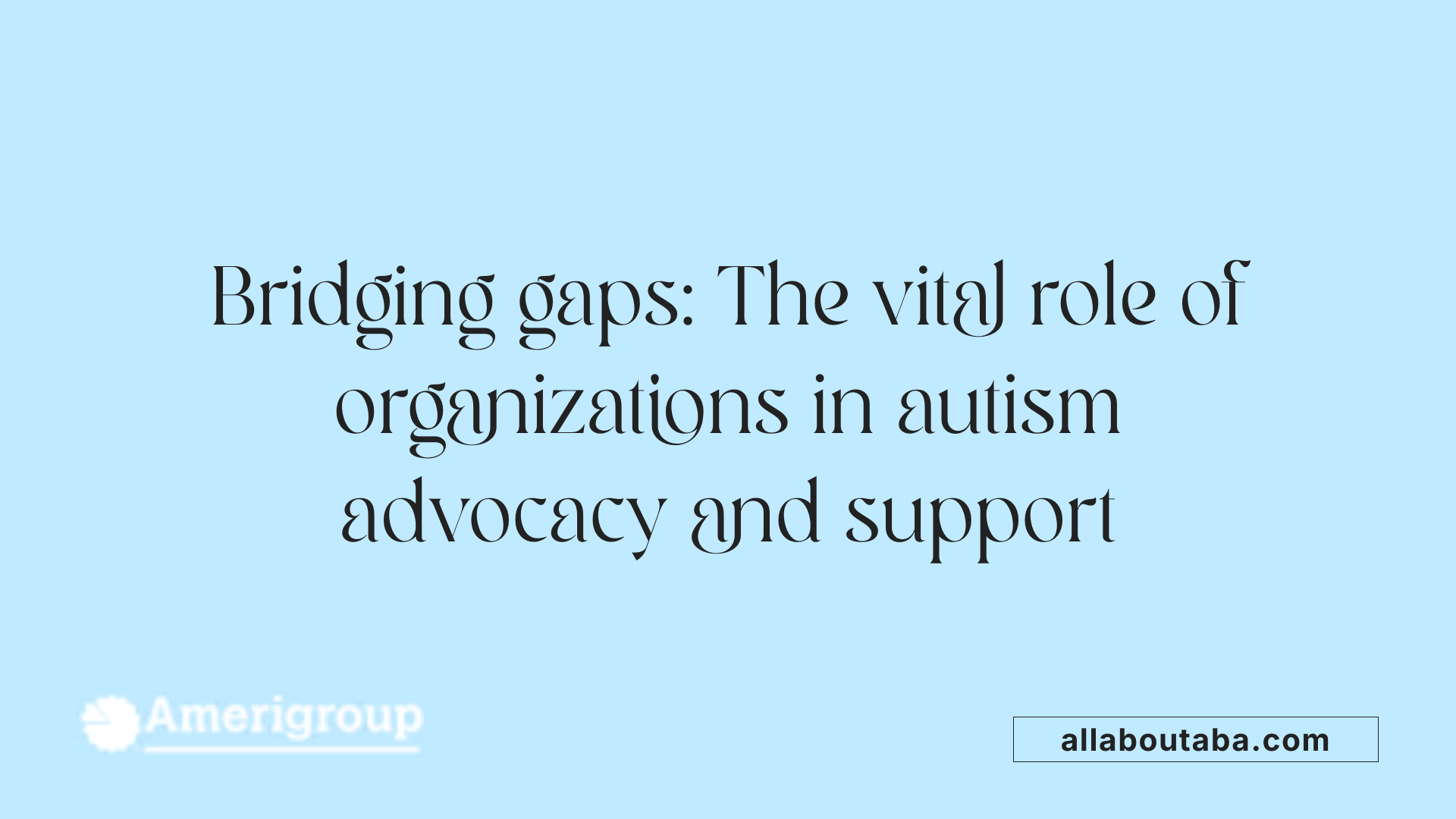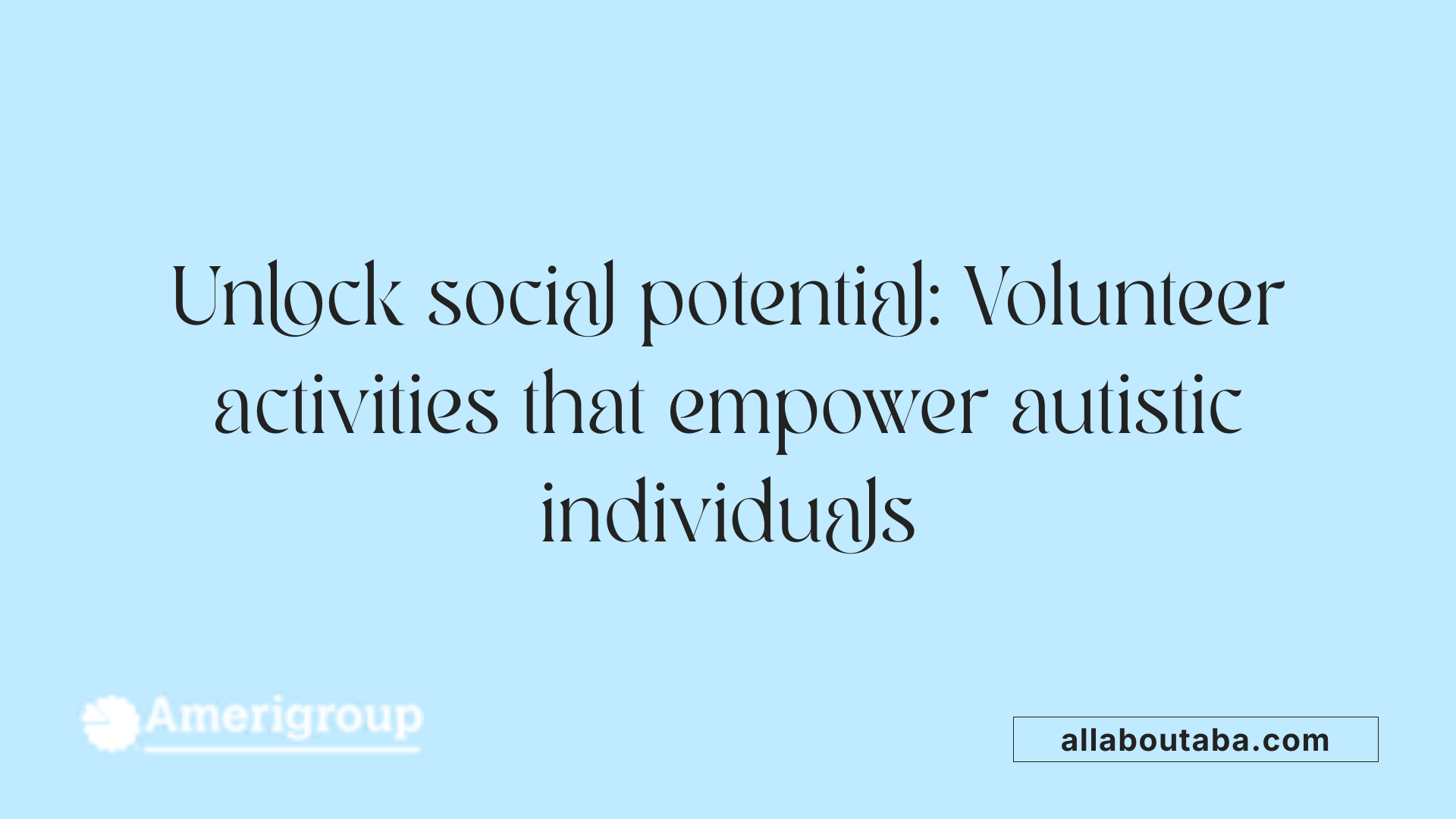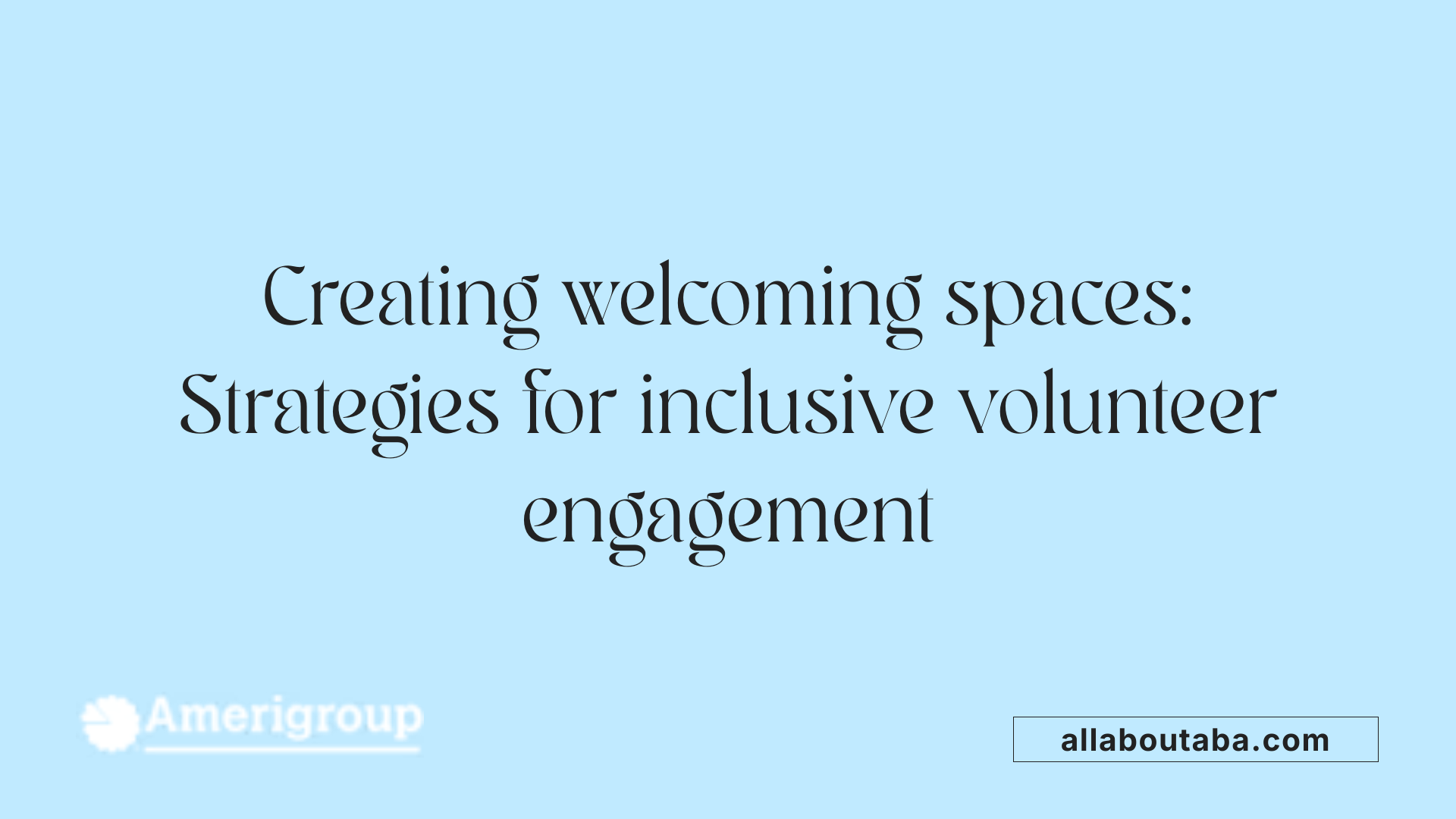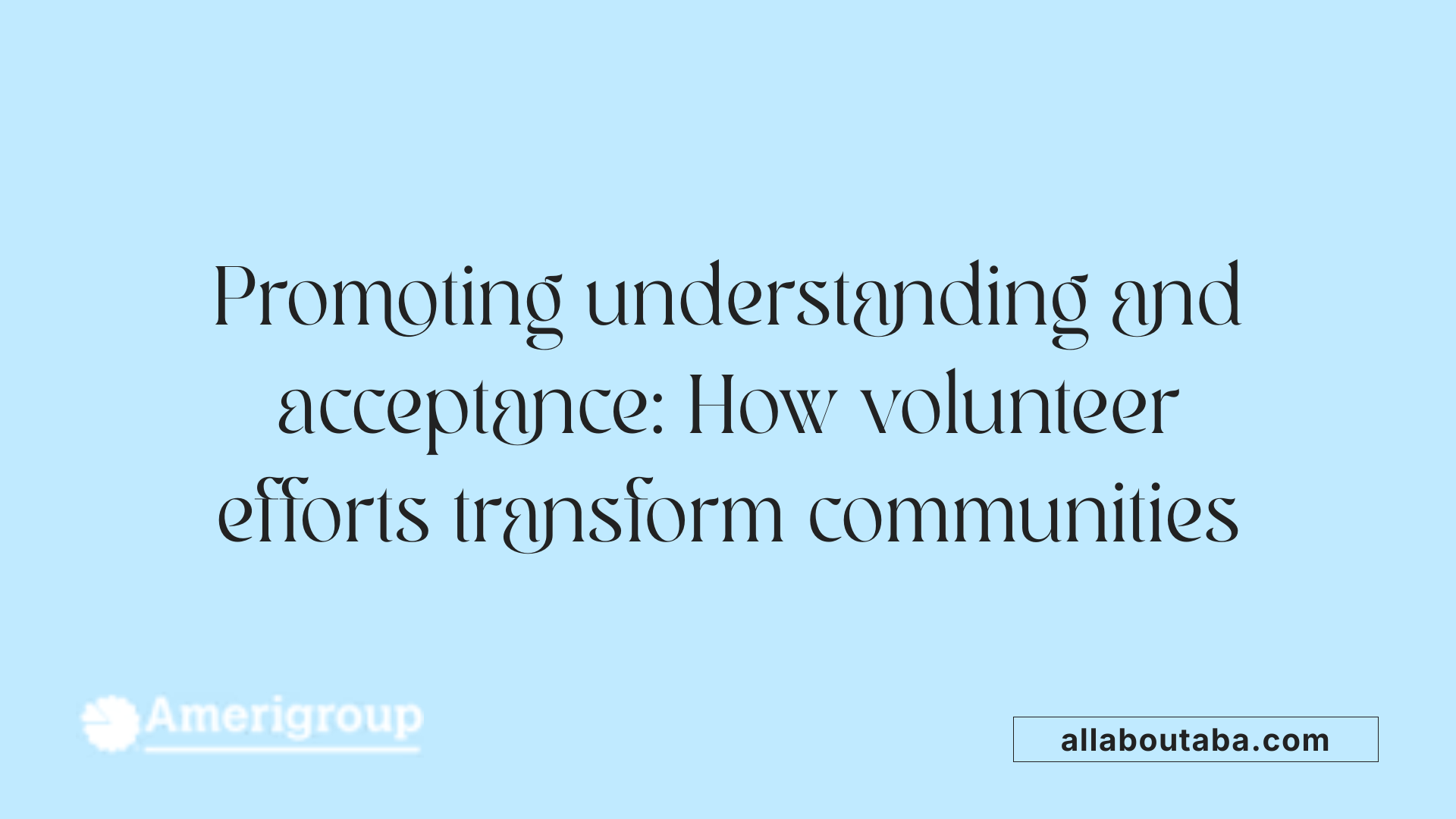Fostering Inclusion and Support Through Volunteer Engagement
Volunteer work plays a vital role in supporting autistic individuals and enriching communities. When approached with patience, empathy, and understanding, volunteers can create meaningful and empowering experiences that promote social development, community integration, and personal growth. This article explores various ways to support autistic individuals through volunteering, highlighting resources, strategies for inclusivity, and the benefits of active participation for both volunteers and autistic community members.
Understanding the Role of Volunteer Organizations in Autism Support

How does The Autism Project engage volunteers in supporting individuals with Autism Spectrum Disorder (ASD)?
The Autism Project offers a variety of volunteer programs designed to foster social skills, build confidence, and promote community inclusion. Volunteers assist with social skills groups, summer camps, parent and professional training, and support groups. They also help with fundraising and administrative support, playing a vital role in program execution.
These roles are tailored to enhance social development by providing direct interaction in safe, welcoming environments. Volunteers typically work with children, teens, and their families, acting as mentors, peer models, or general supporters. Importantly, volunteers as young as 13 years old can participate, making it accessible for high school students.
What internship opportunities are available and how do they benefit participants?
The Autism Project also offers unpaid internships that provide college academic credit. These internships give participants firsthand experience working directly with children and adults with ASD across multiple programs. Interns support various activities, from assisting during camps to participating in social skill development, which helps develop practical skills, increase understanding, and foster professional growth.
Which specific activities do volunteer roles include?
Among the activities, volunteers support the annual Imagine Walk, engage in peer mentoring during social groups, and serve as peer models at summer camps. They also assist staff by providing logistical support or participating in specialized programs like ACEing Autism, which uses tennis to help children develop social skills. These diverse roles serve not only to aid the individuals with autism but also help volunteers develop empathy and practical skills.
How do organizations like ACEing Autism, Autism Speaks, and Luv Michael contribute?
ACEing Autism organizes tennis-focused volunteer programs that promote physical activity and social interaction among children with autism. Autism Speaks advocates through awareness campaigns, community events like walks and runs, and resource distribution to educate and involve the wider community. They also engage volunteers in activities such as distributing educational materials, supporting awareness events, and helping at public gatherings to foster understanding.
Luv Michael provides a virtual volunteer opportunity for adults with autism, allowing them to advocate, build awareness, and support community projects. Volunteers can earn service hours, endorsements, and develop advocacy skills. This holistic approach helps grow inclusive communities and empowers autistic individuals to participate meaningfully.
| Organization | Volunteer Opportunities | Key Focus | Target Audience |
|---|---|---|---|
| The Autism Project | Social skills groups, camps, administrative tasks | Supporting social skill development, community integration, and program support | Children, teens, families, young volunteers |
| ACEing Autism | Tennis programs | Promoting physical activity and social skills through sports | Children with autism, tennis enthusiasts |
| Autism Speaks | Awareness campaigns, resource distribution | Raising awareness, advocating for policy change, fostering community awareness | General public, families, professionals |
| Luv Michael | Advocacy, resource building, community education | Empowering autistic adults as advocates and community leaders | Adults with autism, youth volunteers |
How can supporting autistic individuals through volunteering foster positive change?
Volunteering with autism organizations not only aids individuals with ASD but also offers volunteers transformative experiences. It enhances understanding, empathy, and social skills. Autistic individuals benefit from inclusive environments that nurture their talents and help them develop independence.
Volunteers often witness growth from shy to engaged communicators, learning patience and effective communication. Participation in community activities creates natural social opportunities that reduce stigma and foster acceptance.
Supporting through volunteer work offers a sense of purpose, dignity, and belonging. It showcases that everyone can contribute, regardless of abilities, and encourages a community-wide embrace of diversity.
Overall, these organizations exemplify how passionate volunteers support, empower, and connect autism communities, creating a more inclusive society for all.
Volunteer Opportunities and Their Impact on Social and Communication Skills

What activities do Autism Projects and related organizations offer for volunteers?
Organizations supporting autism, such as The Autism Project, ACEing Autism, Autism Speaks, and others, provide a diverse range of volunteer opportunities. These include assisting with social skills groups, summer camps, community events like walks and carnivals, and educational programs. Volunteers can help with organizing events, supporting activities, mentoring peers, or even providing administrative assistance.
Special programs like soccer camps, art showcases, and sensory-friendly events aim to foster inclusion and community connection. For example, the Moving Mountain Soccer Camp promotes teamwork among kids with autism, while events like the Uplifting Celebration for Autism create sensory-sensitive environments for families.
Some programs organize virtual volunteer roles, such as advocating for autistic adults and managing online resource databases. Others involve direct interaction, including peer mentoring in social groups, supporting summer camp as peer models, or helping at local community centers. Across all these activities, volunteers work directly with children, teens, adults with ASD, and their families to build understanding, social skills, and confidence.
Who can volunteer in these initiatives?
Many of these programs welcome volunteers from high school and college levels, with some allowing those as young as 13 years old to participate. Professionals—such as special education teachers, speech-language pathologists, occupational therapists, ABA therapists, and tennis instructors—are also encouraged to contribute their expertise. Furthermore, autistic individuals and their families are actively encouraged to volunteer, bringing unique insights and authentic experiences.
For example, Luv Michael's virtual advocacy program allows autistic adults and teenagers to volunteer by developing resources or advocating for policy change, often earning service hours and leadership recognition. Similarly, community events and local initiatives in Oklahoma or Utah welcome volunteers of various age groups, emphasizing inclusive participation.
How does volunteering influence social development and confidence?
Engaging in volunteer work offers numerous benefits, especially in enhancing social and communication skills. Volunteers report that supporting children or autistic peers helps foster patience, empathy, and understanding. Many children and teens, initially shy or withdrawn, grow more comfortable engaging in conversations and group activities.
Volunteers see firsthand how involvement promotes confidence, resilience, and a sense of purpose. For autistic individuals, volunteering environments serve as safe spaces to practice social skills without the pressure of typical social cues. This sense of belonging and acceptance boosts self-esteem and encourages independence.
What do testimonials reveal about the impact of volunteering?
Families and volunteers alike share positive stories about how participation has transformed perceptions. Families note improvements in their children's social abilities and self-view, while volunteers express increased empathy and understanding.
Autistic adults involved in advocacy programs highlight that volunteering helps them feel seen, valued, and integral to their communities. Many say that through volunteering, they develop employment skills, leadership abilities, and a sense of community belonging.
| Organization | Volunteer Activities | Target Group | Impact Highlights |
|---|---|---|---|
| The Autism Project | Social skills groups, summer camps, walks | Children, teens, parents | Increased social confidence, community connection |
| ACEing Autism | Tennis coaching, peer mentoring | Kids with autism and tennis enthusiasts | Improved social skills, teamwork |
| Autism Speaks | Advocacy, resource distribution, events | Autistic individuals, families | Greater awareness, inclusion |
| Luv Michael | Advocacy, resource building, policy | Autistic teens and adults | Empowerment, leadership, independence |
| AuSM | Event support, camp activities | Families, volunteers of all ages | Community involvement, understanding |
| AutismOklahoma | Community events, youth programs | Youth and young adults | Community engagement, skill development |
Volunteering across these varied programs demonstrates how inclusion and active participation can foster growth, empathy, and community support. Whether virtual or in person, volunteering remains a vital element in empowering autistic individuals and enriching communities.
Enhancing Social and Emotional Well-being Through Volunteering
 Volunteering plays a significant role in supporting the social and emotional health of autistic individuals. It offers opportunities for them to forge meaningful social connections and improve their communication skills. By engaging in group activities such as social skills groups, summer camps, or community events, autistic individuals can practice social interactions in supportive environments, reducing feelings of isolation and increasing their confidence.
Volunteering plays a significant role in supporting the social and emotional health of autistic individuals. It offers opportunities for them to forge meaningful social connections and improve their communication skills. By engaging in group activities such as social skills groups, summer camps, or community events, autistic individuals can practice social interactions in supportive environments, reducing feelings of isolation and increasing their confidence.
Participation in volunteer roles helps build emotional resilience, especially when activities are tailored to individual strengths and interests. For example, volunteering in programs like Autism Serves encourages self-esteem and empowerment by allowing participants to contribute in ways that highlight their abilities. These experiences foster a sense of achievement and purpose, which are vital for emotional health.
Furthermore, volunteer programs promote community integration and acceptance. When autistic individuals and their families participate in community service events, it enhances awareness and understanding, leading to a more inclusive society. Volunteers of all ages, including teens and adults with autism, help break down barriers and dispel misconceptions by sharing their skills and experiences.
Programs such as Autism Serves specifically emphasize empowerment and self-esteem through community involvement and advocacy. These initiatives help participants develop confidence, social skills, and independence, fostering a positive self-image. Overall, volunteering acts as a powerful tool for nurturing emotional well-being and strengthening social bonds within and beyond the autism community.
Building Inclusive Volunteer Programs and Environments

How can organizations facilitate inclusive volunteering for autistic individuals?
Creating truly inclusive volunteer programs involves multiple deliberate strategies. First, organizations should establish sensory-friendly and accessible environments. This includes reducing loud noises, bright lights, and overwhelming visual stimuli that can trigger discomfort or sensory overload for autistic volunteers. Providing quiet zones or sensory tools like noise-canceling headphones can make participation more comfortable.
Next, effective communication is vital. Using visual supports such as picture schedules or social stories can help clarify expectations and procedures. Clear, concrete language aids understanding, especially for those who benefit from straightforward instructions.
Training staff and volunteers in autism awareness is another crucial step. Education about autism spectrum disorders helps reduce stigma, promotes patience, and fosters respectful interactions. Training can cover recognizing sensory sensitivities, effective communication techniques, and ways to support social engagement.
Involvement of autistic individuals in planning processes is essential. When they participate in decision-making, programs are better tailored to meet their needs and preferences. This empowerment encourages greater participation and ownership.
Structured activities designed with trust, social skill development, and empowerment in mind create safe spaces for growth. Mentorship programs, community projects, and team-building exercises allow autistic volunteers to foster skills at their own pace while forming meaningful connections.
Collaboration with families, mental health professionals, and the volunteers themselves ensures that activities remain personalized. Monitoring feedback and making ongoing adjustments based on individual responses help sustain engagement.
Lastly, visible efforts to promote understanding and acceptance, such as showcasing volunteer achievements and hosting inclusive events, can deepen community support. When organizations actively involve autistic voices and adapt their spaces and practices accordingly, they build genuinely inclusive volunteer environments that benefit everyone.
The Broader Impact of Volunteerism on Autism Awareness and Community Support

How can volunteering benefit autistic individuals and the community?
Volunteering plays a crucial role in fostering understanding and support for autistic individuals. It helps promote social skills and community integration, enabling autistic people to connect with others in welcoming environments. Many programs offer opportunities for children, teens, and adults—such as peer mentoring, social skills groups, and participation in community events—that nurture personal growth, confidence, and independence.
For autistic individuals, volunteering can be transformative. It provides a platform to practice social interactions, develop life skills, and build friendships without the pressure of conventional settings. Activities like supporting summer camps, participating in sports programs like Moving Mountain Soccer Camp, or engaging in community service foster a sense of belonging and purpose.
For the wider community, volunteer initiatives raise awareness of autism, dispel misconceptions, and promote acceptance. Events such as autism walks, sensory-friendly festivals, and talent showcases highlight the talents and needs of autistic people, encouraging empathy and inclusion. These efforts help reduce stigma and create a more understanding society.
Opportunities for different age groups, including children and adults
Volunteer programs are designed to be inclusive of all ages. Children as young as 13 can participate in peer mentoring or help with community projects, fostering early engagement and awareness. Autistic adults and teens often volunteer in advocacy roles, mentoring younger peers or supporting community events like the Luv Michael advocacy program.
Adults with autism are valued volunteers in roles such as supporting employment programs or assisting in educational workshops. Many organizations, including Autism Speaks and OAR, provide structured opportunities for autistic individuals to contribute actively, reinforcing their sense of community and agency.
Long-term benefits like employment readiness and independence
Volunteer experiences often serve as stepping stones toward employment and independent living for autistic individuals. They allow participants to develop work-related skills such as reliability, communication, and teamwork. These skills can enhance resumes, provide references, and boost confidence in job-seeking.
Furthermore, volunteering environments help individuals understand different roles, explore interests, and gain real-world experience beyond therapeutic or sheltered settings. This practical engagement can increase self-esteem, reduce social anxiety, and prepare autistic people for successful employment and full community participation.
| Aspect | Benefits | Examples | Additional Notes |
|---|---|---|---|
| Social Skill Development | Builds communication and interaction skills | Peer mentoring, social skill groups | Encourages natural, genuine interactions |
| Community Awareness & Acceptance | Fosters understanding and reduces stigma | Autism awareness events, advocacy | Promotes societal change and inclusive attitudes |
| Personal Growth & Confidence | Increases independence and purpose | Camp support roles, event volunteering | Empowers individuals, highlighting strengths like creativity or empathy |
| Long-term Employment Skills | Prepares for work environments | Internships, supported employment | Provides practical experience not replicated in traditional settings |
Volunteering is more than just giving time; it embodies the spirit of mutual support. By engaging diverse community members—from children to autistic adults—it creates a resilient, understanding, and inclusive society that values every individual’s contributions.
Empowering a More Inclusive Future
Supporting autistic individuals through volunteer work requires a compassionate and informed approach. By leveraging resources from various organizations, implementing inclusive strategies, and fostering an environment of understanding and acceptance, volunteers can significantly impact the lives of autistic people. These efforts not only aid personal development and emotional well-being but also promote community awareness and inclusion. Through collective action and dedicated support, communities can build a future where every autistic individual is valued, empowered, and clearly seen as an essential part of society.







